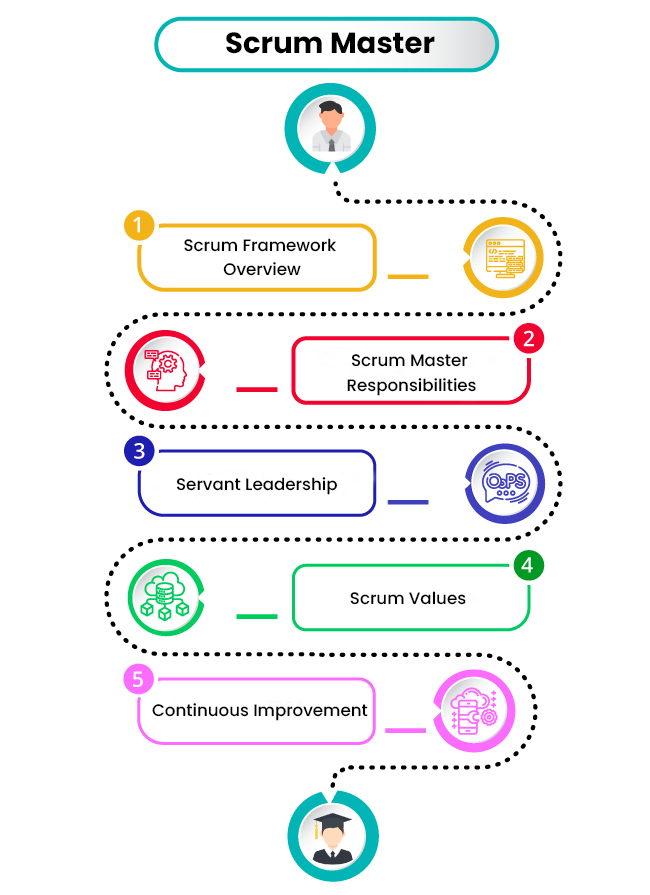Curriculum in Scrum Master
General Knowledge
Scrum Roles
Scrum Meetings
Scrum Artifacts
Scaling Scrum
Curriculum in Scrum Master
Scrum Master Is Preferred by Over 35% of Developers. Scrum Master is the most widely used and in-demand programming language in the IT industry.
- Agile Manifesto
- Scrum Foundations
- Empirical and defined processes
- Sprint
- The Significance of “Done
- The Five Scrum Values
- Applicability of Scrum
- Overview of Scrum Roles
- Scrum Master
- Product Owner
- Teamwork
- Team Characteristics
- Impact on Traditional Roles
- Sprint Planning Meeting
- Daily Scrum Meeting
- Sprint Review Meeting
- Sprint Retrospective Meeting
- Release Planning Meeting
- Product Backlog
- Management and Refinement
- Responsibility and Participation
- Item Readiness
- Item Estimation
- Product Increment and the Definition of Done
- Definition of Done (DoD)
- Understanding the DoD
- Sprint Backlog
- Burndown Charts
- Sprint Burndown Chart
- Release Burndown Chart
- Working with Multiple Scrum Teams
- Scaling Teams
- Scaling Product Owners
- Scaling the Product Backlog
- Scaling the Sprint Meetings
- Working with Distributed Scrum Teams
- Product Owner in a Different Location
- Scrum Team Split among Different Locations
- Importance of Infrastructure and Engineering Practices


.png)
.png)
.png)
.png)

.png)
.png)
.png)
.png)
.png)


























